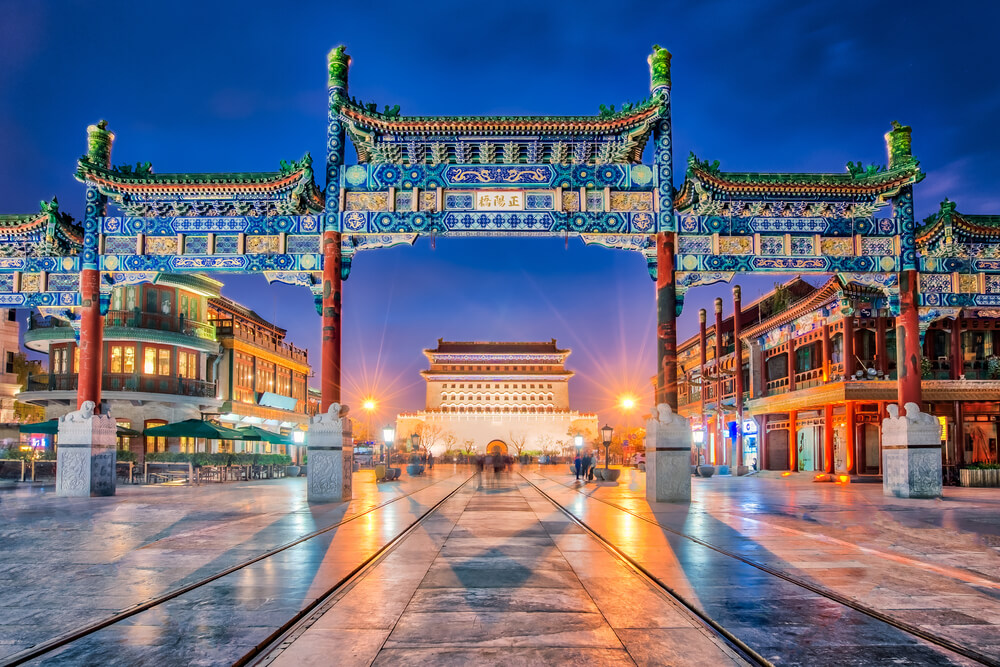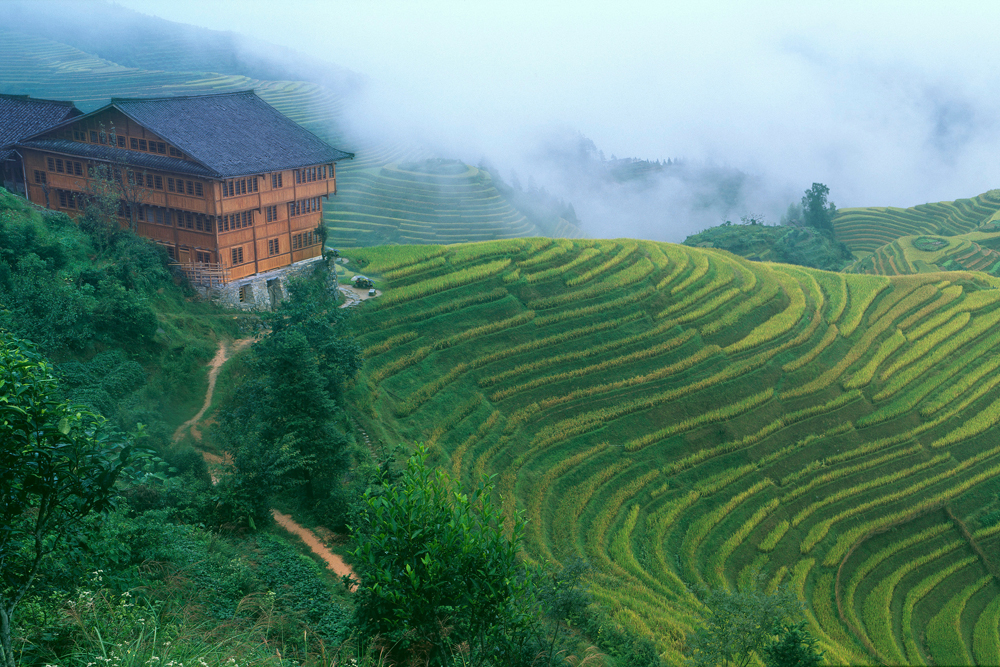Yunnan: Insider’s Guide to China’s Southwestern Province
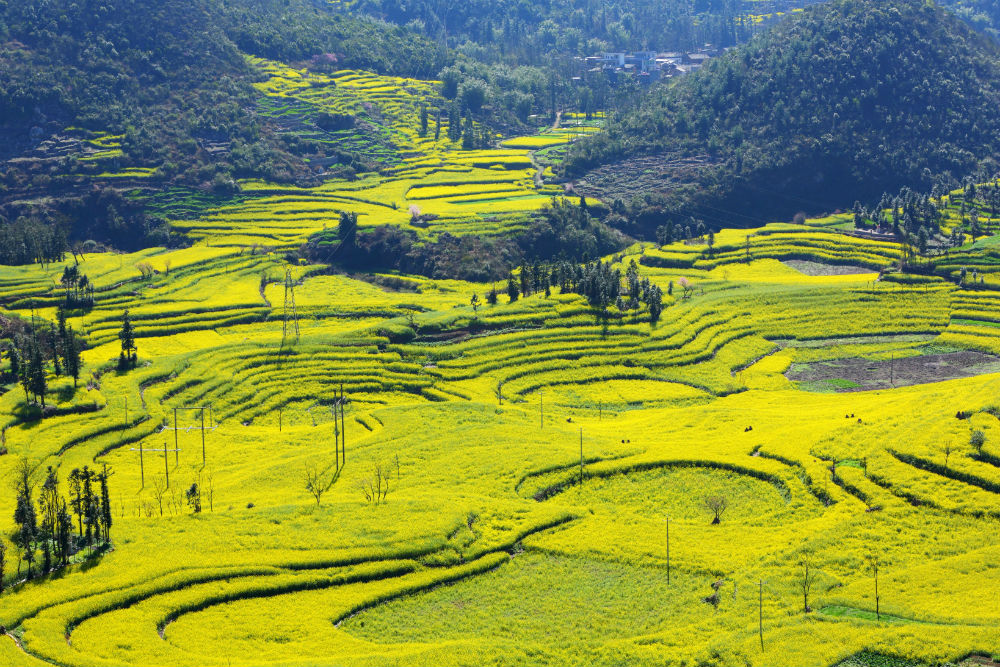 The golden flowers of the canola plant blanket a field in Luoping, Yunnan. Photo: WildChina
The golden flowers of the canola plant blanket a field in Luoping, Yunnan. Photo: WildChina
The insider advice on this page is from one of Wendy’s Trusted Travel Experts for Mainland China, Hong Kong, and Taiwan: Mei Zhang of WildChina.
Sharing her homeland’s hidden gems has been Mei Zhang’s lifelong passion, interrupted only by the years she spent earning her Harvard MBA and working for McKinsey before she founded her travel company in 2000. No matter the occasion—family trip or 50th-birthday celebration—Mei can filter the seemingly endless options for clients to craft the experience that’s just right for them. Mei grew up in Yunnan province and has particular knowledge of Guizhou and Sichuan provinces too; now based in California with offices in Beijing and Taiwan, she has close relationships with hotel and restaurant owners and makes sure that her clients get the red-carpet treatment. Her guides and drivers are the best in the business, opening the doors to authentic Chinese culture and steering travelers away from the crowds, the expected, and all things touristy.
Where to Stay and Eat
Best bang-for-your-buck hotels
Aoding Courtyard, a small boutique hotel in Shaxi market town. Shaxi was an important stop along the ancient tea and horse-trading route, and this courtyard hotel is located just a couple hundred meters from a historic open-air theater. Aoding Courtyard was built by local craftsmen in line with the traditional Bai architectural style, and there are only 17 guest rooms. The staff’s English could be better, but enjoying your morning cup of local tea on the terrace will make up for any linguistic shortcomings. (Your local guide will also be on call to help translate when needed.)
If you’re heading farther north, the 18-room LUX* Shangri-La provides both an elevated stay and great value. Rooms start around $220 a night, which is excellent for a property this stylish and well located. LUX* has developed a string of boutique lodges along the old Tea Horse Road that are thoughtfully designed but never over the top. Plus, many of these lodges are tucked into remote villages with few visitors, so instead of feeling like a tourist, you wake up surrounded by the daily rhythm of mountain life.
In Dali opt for the Sky Valley Heritage Boutique Hotel, a beautifully restored Bai courtyard home doubling as an authentic and serene cultural retreat. It’s perfect for immersing in local traditions and has stunning views of the surrounding canola fields.
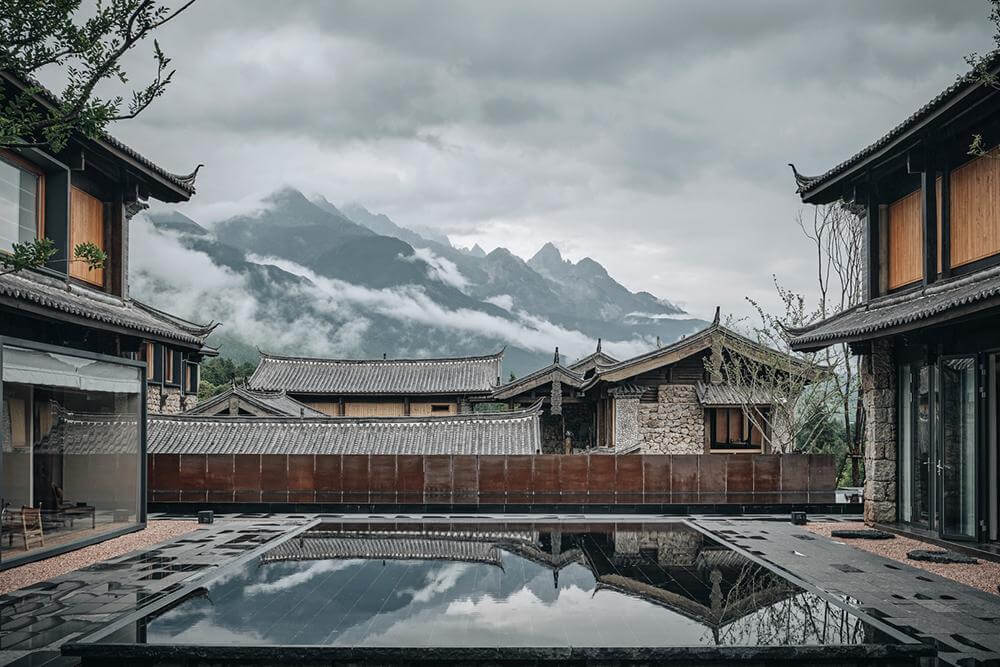
When you stay here, opt for a room with a view. Photo: Hylla Vintage Hotel
Best-value splurge hotel
Hylla Vintage Hotel, in Lijiang, is one of those places that somehow manages to feel both luxurious and intimately local. Tucked in Baisha village under Jade Dragon Snow Mountain, it strikes a good balance between traditional Naxi architectural touches and contemporary comfort. The food is creative and market-fresh. Do book a mountain-view room—it’s worth the slight upcharge.
Restaurants the locals love
Most restaurants in Yunnan are small family-run affairs with unrecognizable names that don’t translate from Chinese, but a very good place to graze is Weishan’s Old Town, known for its snack foods, such as steamed rice buns and sweet pancakes. You can’t go wrong simply walking down its pedestrian street and sampling the wares at any food stand. Be sure to try the stand that offers One String Noodle. It is only open in the mornings, as they always sell out by noon.
Green Field Kitchen in Dali is a favorite café of Mei’s and many other locals. Sure, they sell good sandwiches and coffee, but many go just for the view: The Kitchen is located next to Erhai Lake and is hidden in the midst of cultivated fields.
Meals worth the splurge
Having the chance to experience a farm-to-table cross-cultural culinary journey is not how you’d expect to spend your time in Yunnan, but that’s exactly what you’ll find at Casa Bai, a private dining experience in the courtyard home of a French chef living in Dali. It’s reasonably priced at $70 per person, and it’s worth every penny—not to mention extremely exclusive.

Taste the fusion of Yunnan ham paella at Casa Bai. Photo: WildChina
Dali’s Longxingyuan Restaurant serves the very best local specialties, including steamed ham, rice noodle salad, and mushrooms cooked any style. It won’t break the bank, costing $20 to $50 per person if you order enough for everyone to be happily stuffed. Everything on the menu is worth trying.
Dishes to try
Niugan jun (porcini mushrooms), fried with dried chili. Locals have been harvesting this wild mushroom from the mountainsides for centuries. The flavor is strong, like truffles, and the chili makes it unmistakably Yunnan-style. Porcinis in Yunnan aren’t cheap (probably the same price you’d pay in the U.S.) but the portions are always generous.
Small wok-cooked rice noodles is a very simple and scrumptious noodle soup that’s cooked over an open fire and flavored with pickles, chives, and minced pork. It will cost you about a dollar, but for such flavor you’d gladly pay many times that much.
Yunnan ham fried with fresh chili pepper—ideally the kind that’s not too spicy. The chili is roughly sliced and fried with the meat, no additional ingredients required. (See Mei’s book Travels Through Dali: With a Leg of Ham for more on the region’s famous cuisine.)
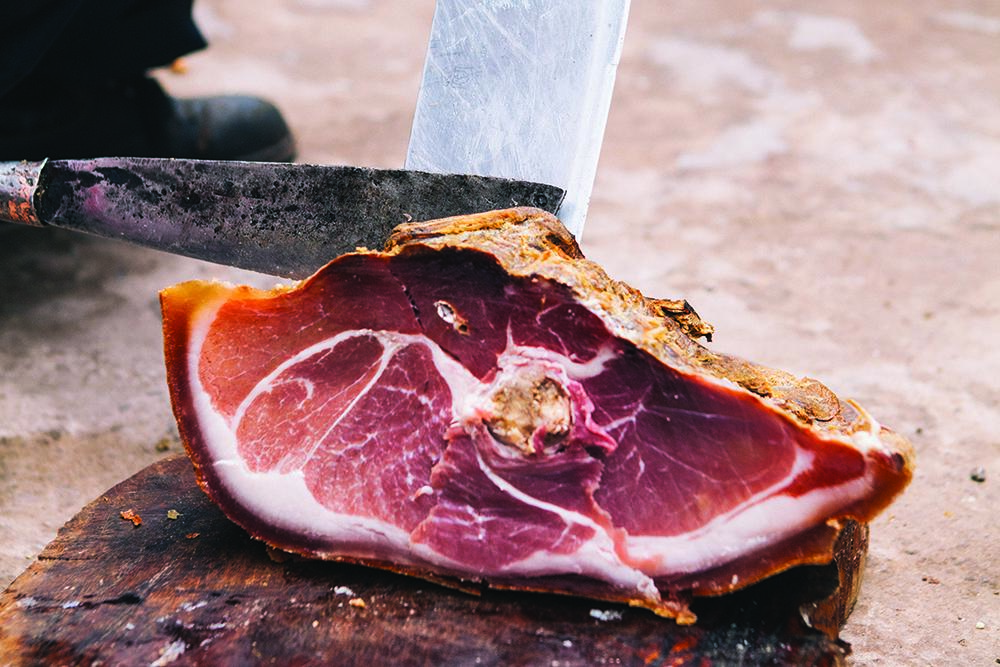
Ham is so cherished in Yunnan that Mei Zhang wrote a book about it. Photo: WildChina
What to See and Do
Don’t bother
The Old Towns of Lijiang, Dali, and Shangri-La are quite beautiful at dawn, but in each of these destinations the whole place is overrun with tourists by 10am. Skip Yunnan’s Old Towns if you can’t see them first thing in the morning.
Avoid any village that has “ethnic minority” in the name. These are often cheaply done, movie-set-like “villages” for tourists.
Don’t miss
Dali. On the surface, people mistake it for a lesser Lijiang, complete with tourists and shops, but Dali—traditionally the capital of Dali Kingdom—has a beautiful soul, and the local Bai communities have managed to maintain their lifestyle in spite of the tourists. Dali has attracted a growing group of China’s urban elite, who have created a vibrant art and architecture scene here. It has also become a magnet for creative chefs opening farm-to-table restaurants, where much of what you eat comes fresh from the market that morning.
Most underrated places
Jianchuan Shibaoshan Grotto, in Dali, documents the history of the Dali Kingdom, which followed the Tang Dynasty. Though as important as the famed Mogao Caves along the Silk Road, it is little known and therefore little visited.
Venturing to the west of Yunnan, the Gaoligong Mountains form one of China’s richest biodiversity corridors, where misty forests are home to rare birds, butterflies, and even red pandas. In the foothills lies Baoshan, once a stop on the Tea Horse Road, from where you can hike all the way to Dali along trails that pass terraced fields and Yi and Bai villages.
Hidden gems
Dinner with Mei’s Dali housekeeper, Auntie Cheng. You can go to the market with her in the morning to choose fresh, local ingredients and watch her transform them into a simple but delicious Bai meal on an open stove in her courtyard.
Some of Yunnan’s most rewarding discoveries come along its ancient trails: They lead you into villages and valleys that feel worlds away from the busy tourist circuit. Hiking the Tea Horse Road takes you along narrow cliffside paths where mule caravans once trod. The trail leads you to Dimaluo, a Catholic Tibetan village often shrouded in the clouds and surrounded by pristine lakes, forests, and peaks.
Crossing Biluo Snow Mountain on the old Missionary Trail brings you into the Shangri-La valleys and down to Cizhong, a small village perched on a terrace above the Mekong where Buddhists, Muslims, and Catholics have lived side-by-side for generations. The 19th-century church still anchors the community, and locals continue to make wine from vines planted by French missionaries. Songtsam Lodge makes for a tranquil and comfortable stay.
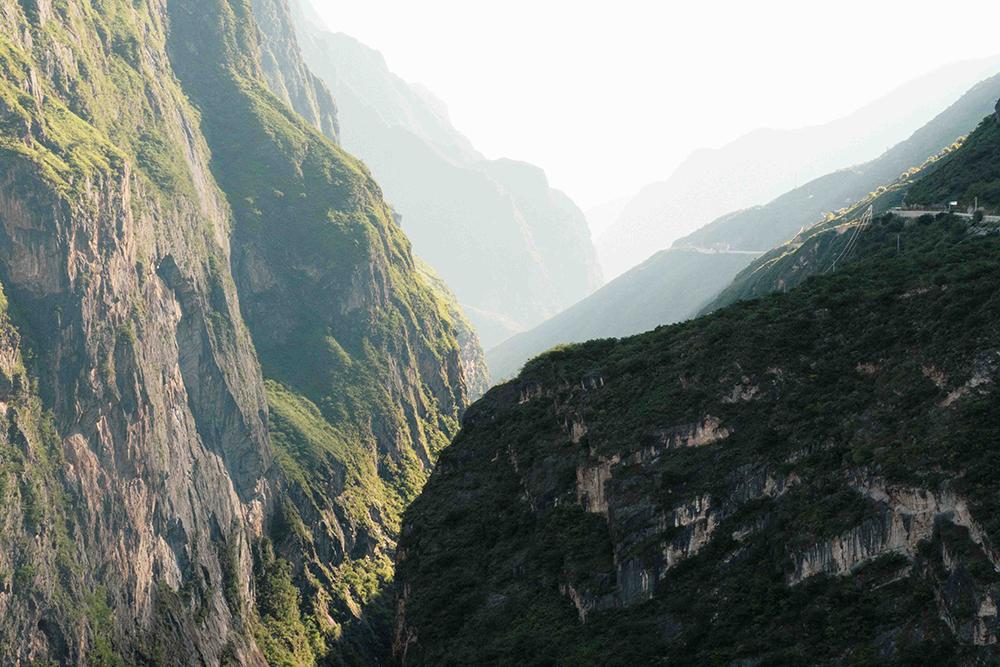
There’s a right way—and a wrong way—to see Tiger Leaping Gorge. Photo: WildChina
Walking the Upper Trail of Tiger Leaping Gorge offers an experience of the Chinese countryside that eludes most tourists. Instead of jostling at the main lookout, you’ll hike past farmhouses and steep bends to viewpoints where the Jinsha River roars below and snowy peaks rise above.
Cheap thrill
The Impression Lijiang show is a live spectacle of music and dancing highlighting local cultures and performed daily in an outdoor park set against spectacular alpine scenery. The show features hundreds of performers in colorful costumes and was created by the famed movie director Zhang Yimou, who also directed the Beijing Olympic Opening Ceremony. Tickets are about $30, which is very inexpensive for a show the likes of which you’ve never seen and are sure to never forget.
Bragging rights
Working with a conservationist in Tacheng’s Golden Monkey National Reserve. Residing mostly in the mountains of Yunnan, Sichuan, and Guizhou, China’s golden monkey is a rare and understudied species that is quickly nearing extinction. Mei can arrange for you to track these magnificent but rare creatures and learn about the work being done to protect them. This is a particularly great option for families.
Mei can send you tracking golden monkeys in Yunnan’s forests. Photo: WildChina
Dali has attracted some of China’s leading artists, filmmakers, dancers, and photographers. For travelers who are interested in learning more about the arts in China, Mei can arrange a private visit to the home of one of these national cultural icons or even dinner with one of them overlooking beautiful Erhai Lake.
Downtime
Take a leisurely bike ride to the market in Dali to buy some fresh wildflowers and a clay pot in which to arrange them. Back at the hotel, spend time reading—perhaps a book about the explorer and botanist Joseph Rock—while sipping freshly made green tea. Later in the day, ride your bike 15 minutes to the home of a Bai villager to learn to cook a mushroom or stir-fry dish, followed by dinner with the family. Finish the day with a soak in a hot spring or massage at a spa.
Best Times to Go
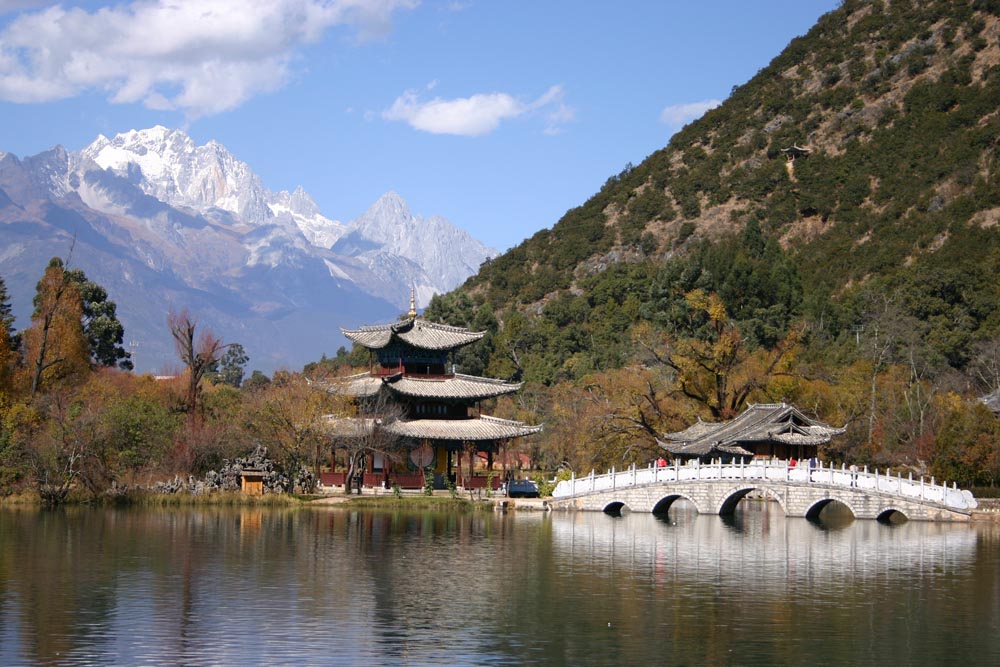
There’s something good to be said for every season in Yunnan: From February to June, spring arrives early and in waves of cherry blossoms, rhododendrons, and wildflowers everywhere.
July and August can be rainy, but this is the best place to escape the heat that sweeps China at this time. And there’s another silver lining: The rain brings wild mushrooms of every variety, but most notably the prized matsutake. Served stir-fried, deep-fried, or au naturel, they’re delicious!
October ushers in crisp blue skies and fall colors, making the high mountains all the more striking.
In January, verdant, tropical Xishuangbanna, which borders Myanmar and Vietnam, cools to the delightful mid 70s. Its terraced rice paddies are flooded in preparation for planting, making a photographer’s fantasy come true.
Worst Times to Go
Avoid Chinese holiday weeks, which fall during the first weeks of May and October, and Chinese New Year (which moves based on the lunar calendar). During these times, the old towns of Lijiang and Dali are jam-packed with tourists.
Biggest Rookie Mistake
Rushing through the province as part of a grand tour of China. Yunnan connects the rest of China with Tibet to the northwest, Myanmar to the west, and Laos and Vietnam to the south. It is home to 25 different ethnic groups, and its diverse topography ranges from the tropical south to the northern glacier-covered peaks, less than a 40-minute flight away. If you spend only two weeks in Southeast Asia, give at least one of them to Yunnan.
Scam Alert
Yunnan has jade shops everywhere, but unless you are a jade expert, chances are high that you’ll be overpaying for a piece of stone.
Tipping Tip
There is no need to tip in restaurants or bars. Tipping in general is not part of the culture. However, tipping is expected in five-star hotels and with guides and drivers who speak English. A gratuity of $25 per day for the guide or $15 per day for the driver is standard.
Airport Intel
There are many local airports in Yunnan, but all flights stop in Kunming, the capital city. The new Kunming airport is one of the nation’s largest, so allow plenty of time to transfer. If Kunming is your first point of entry into China, you’ll usually need to pick up and recheck your luggage after clearing immigration and customs for your onward connecting flight.
The Souvenirs
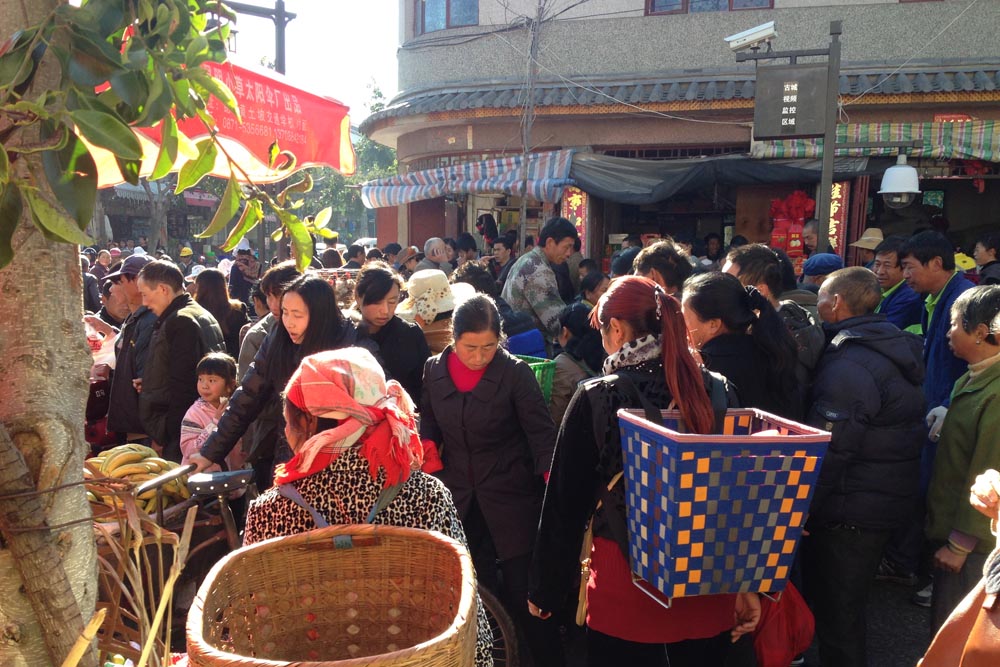
A bamboo basket. Yunnan locals use these when shopping for vegetables, and they’re sold in all the markets. There are different styles by different ethnic groups. The only problem is that they’re fairly large and can be a hassle to carry home. Some women carry them on the plane in place of a purse; if you buy two or three you can have them boxed and check them.
If you’re venturing west toward Tengchong, the Gaoligong Museum of Handcraft Paper is worth a stop. Their handmade paper, created with traditional techniques, makes for beautiful and easy-to-pack souvenirs.
Instagram Moments
At the first bend of the Yangtze, near Lijiang, where the river curves north, there’s a perfect vista of charming villages dotted along beautiful mountainsides. Classic China!
Cangshan Mountain is glorious when photographed from the lakeside in Dali, with the mountain chain encircling the Old Town and a vast carpet of cultivated fields in the foreground.
There are great portrait ops all over Yunnan of ladies from different ethnic groups—Tibetan, Yi, Naxi, etc.,—in their native dress and with big smiles spread across their faces.
Must-Have Apps
China uses its own apps for services, so you won’t get far without Alipay or WeChat. Unique to the experience of modern China is experiencing all you can do with your phone. Subways, bike shares, shops, and restaurants—even in large hotels—all use Alipay, so don’t leave home without it! Whether you want to order late-night snacks to your hotel or call for a ride, you can do it all within Alipay—there’s no need to download lots of separate apps.
WeChat is the main messaging app in China; use it to stay in touch with your guide and driver.
DiDi is great for finding a taxi back to your hotel after dinner.
Although popular social media sites like Facebook and Instagram are blocked in China, you can keep your family and friends updated on your China adventures by purchasing and activating an eSIM on your device before leaving home. There are many service providers out there and they all have easy-to-use apps.
Don't Forget to Pack
Pocket hand sanitizer and small packets of tissues. Chinese toilets in general do not supply toilet paper, so these will come in handy.
Your smartphone—China is close to 100% mobile payments for everything. Can’t say it enough—download Alipay before you leave home!
Sunblock: Most parts of Yunnan are about 3,000 feet above sea level, where the sun can be brutal during the day.
Anyone venturing into the Tibetan part of Yunnan (Shangri-La, for example), should consult a doctor about altitude-sickness medication.


